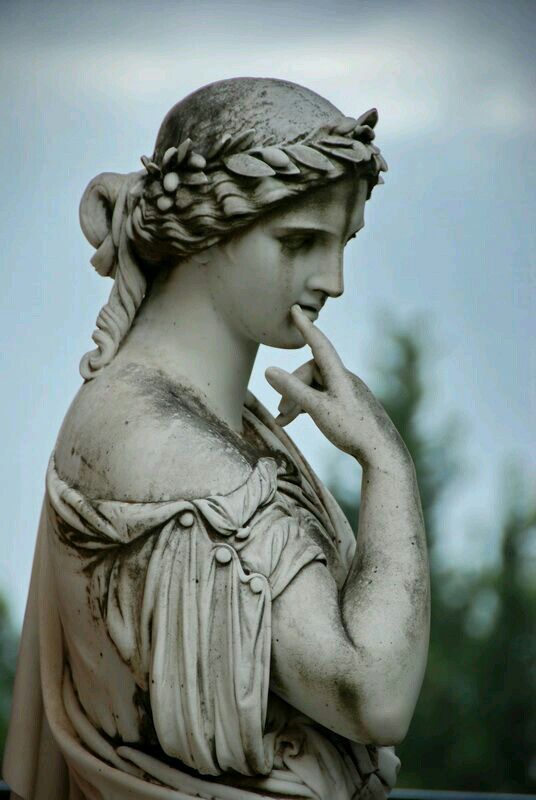

According to the general belief, the favourite haunts of the Muses were certain springs, near which temples and statues had been erected in their honour: Castalia, at the foot of Mount Parnassus, and Aganippe and Hippocrene, on Helicon, near the towns of Ascra and Thespiae. At both these places were their oldest sanctuaries. Thracian settlers, in the Pierian district at the foot of Olympus and of Helicon in Boeotia are usually mentioned as the original founders of this worship. MELETE (Meditation), MNEME (Remembrance), AOIDE (Song), whose worship was said to have been introduced by Aloidae, Otus and Ephialtes, near Mount Helicon. Three older Muses were sometimes distinguished from these. (9) URANIA (the heavenly), the Muse of astronomy with the celestial globe. (8) POLYMNIA or POLYHYMNIA (she that is rich in hymns), the Muse of serious sacred songs usually represented as veiled and pensive. (7) ERATO (the lovely one), the Muse of erotic poetry with a smaller lyre. (6) TERPSICHORE (she that rejoices in the dance), the Muse of dancing with the lyre. (5) MELPOMENE (she that sings), the Muse of tragedy with tragic mask, ivy wreath, and occasionally with attributes of individual heroes, e.g. (4) THALIA (she that flourishes), the Muse of comedy and bucolic poetry with the comic mask, the ivy wreath, and the shepherd's staff. (3) EUTERPE (she that gladdens), the Muse of lyric song with the double flute. (2) CLIO (she that extols), the Muse of history with a scroll. (1) CALLIOPE (she of the fair voice), in Hesiod the noblest of all, the Muse of epic song among her attributes are a wax tablet and a pencil. Hesiod calls them the nine daughters of Zeus and Mnemosyne, born in Pieria, and mentions their names, to which we shall at the same time add the province and the attributes afterwards assigned to each ( see cuts). In Homer, who now speaks of one, and now of many Muses, but without specifying their number or their names, they are considered as goddesses dwelling in Olympus, who at the meals of the gods sing sweetly to the lyre of Apollo, inspire the poet and prompt his song. In Greek mythology originally the Nymphs of inspiring springs, then goddesses of song in general, afterwards the representatives of the various kinds of poetry, arts, and sciences.

Deprecated: Function split() is deprecated in /www/www-ccat/data/classics/myth/php/tools/dictionary.php on line 64


 0 kommentar(er)
0 kommentar(er)
